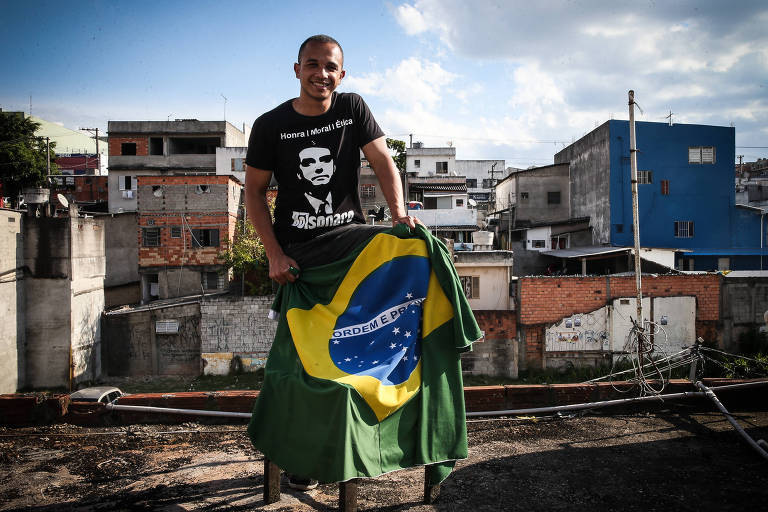Welcome to Iraq. This is how residents called the patch of favela where Douglas Garcia, 24, lives in Americanópolis, in southern São Paulo. The São Paulo Iraq is dominated by PCC, one of the most violent drug gangs in the state, and part of the land lot is covered in rubbish, hence the association with the Middle Eastern country.
Not that Brazil is going through peaceful times, anyway. As Garcia says, we are living through an "ideological war", that came to blow with presidential candidate Jair Bolsonaro's attack.
So Gracia, brother of Gleisson, Victoria, Deivid and Emilly, the firstborn of a house cleaner and a pastor who works as a driver to make a living, chose his side. His is the right.
The right wing's rise in the urban areas is gaining ground in a historical leftie trench -- and Douglas thinks that the most surprising thing is that it didn't happen much earlier. "For the most part, favela residents are already conservative," he says. Douglas is the co-founder of Direita São Paulo (Right São Paulo), a movement that is endorsing him as State Assembly representative and former actor Alexandre Frota for Federal Lower House representative, both by Bolsonaro's party PSL.
"You get to people by appealing to their moral compass. Go ask the bus fare collector if he is ok with his son Jack now being called Mary. He will say no. But you can't get to him by saying that you want to withdraw his public assistance money."
Garcia's own family had once to rely on public assistance, through a program called Bolsa Família (Family Allowance), a cash-transfer initiative aimed at very low-income families. Conservatives heavily criticize the program, created during the Lula years, likening it to an entitlement.
This is how Douglas sees it: "Family allowance here, another allowance there," all these social welfare programs do Brazil a disservice. But of course, it's impossible to take away the benefit without offering something in exchange.
He offers "lowering taxes and getting rid of red tape, which gets more in the way of poor people than rich entrepreneurs."
His father is one example. It took him a long time to get all the documents needed to be able to use his van as a school bus. "So I ask myself: if it were easier for him [to get the documents], would we have needed the cash allowance?"
Until 2013, Garcia considered himself a progressive, through and through. How could he not?
"My teacher would say that the left was defending the poor, and I thought: 'This is my calling in life'." But I couldn't swallow some stuff. Abortion and other causes scared the young man, born and raised an evangelical.
Until the day a friend showed him a video of Bolsonaro saying "the only good thing in Maranhão [a northern Brazilian state] was the Pedrinhas penitentiary," where "scoundrels who screw us over all all the time" were deservedly "getting fucked". "I agreed with absolutely everything he said," Garcia described.
Pedrinhas penitentiary is known for its violent rebellions and human rights violations.
Garcia is also an enthusiast of the politically incorrect and a military dictatorship he's never experienced in the flesh. He tells that that once a female activist sued him for saying telling her: "lady, you're too pretty to be a leftie."
Translated by NATASHA MADOV
Read the article in the original language
